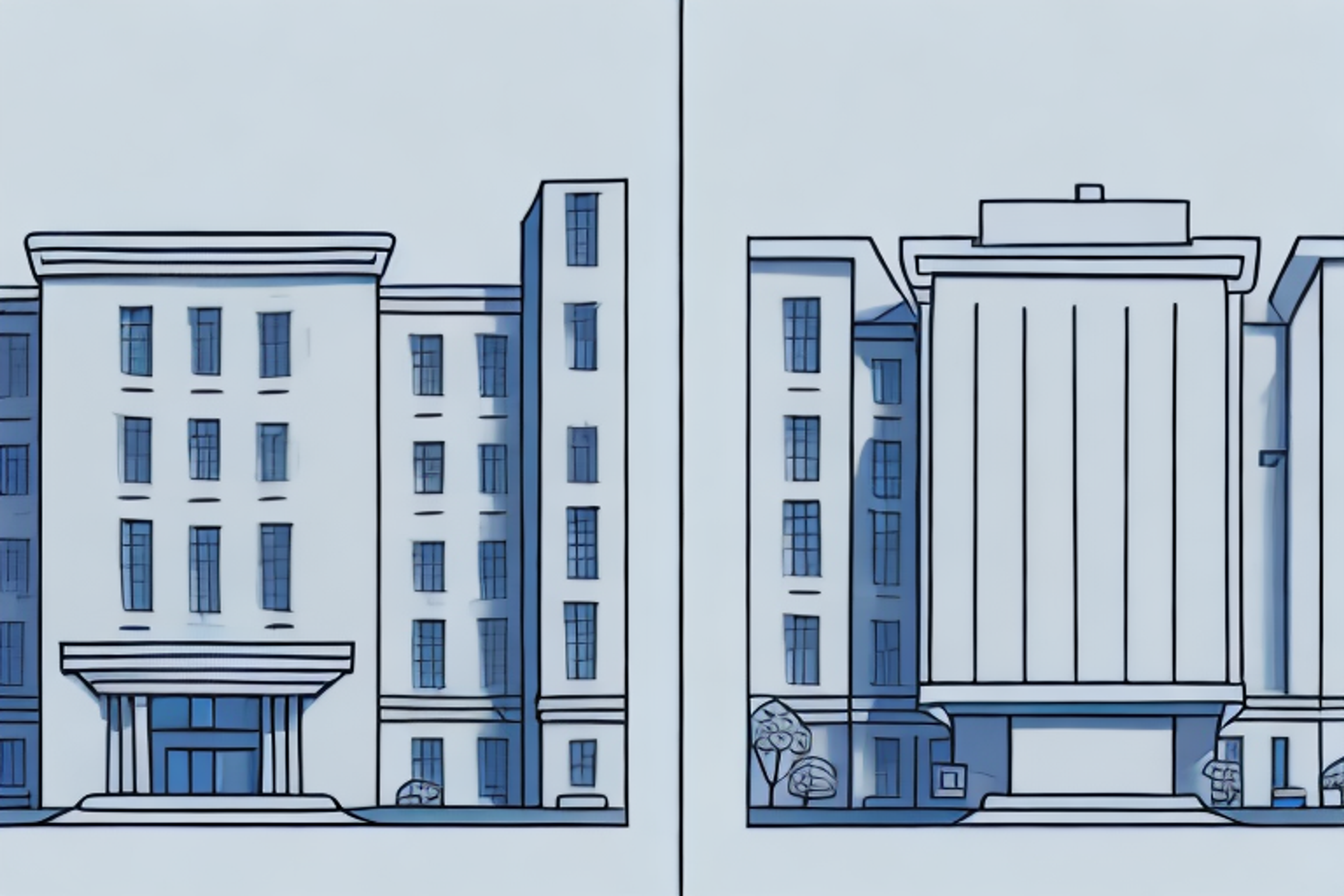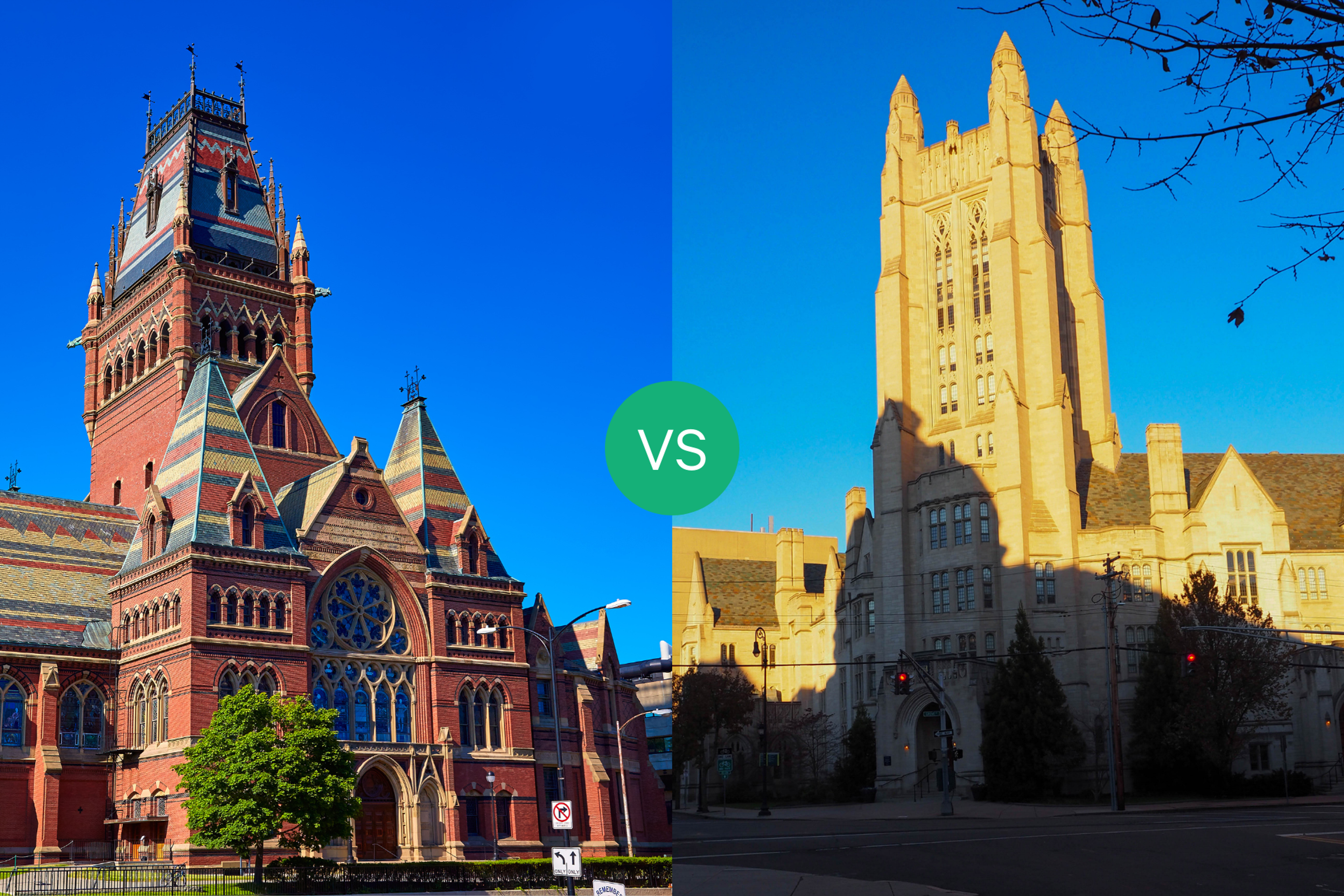University of Michigan--Ann Arbor Law School Vs. Northwestern University Pritzker School of Law: An In-Depth Comparison
Are you considering law school and torn between the University of Michigan--Ann Arbor Law School and Northwestern University Pritzker School of Law? Look no further! Our in-depth comparison breaks down everything from curriculum to campus culture to help you make the best decision for your future legal career..
Posted April 3, 2025

Table of Contents
Free Event

Featuring Indrani S.
Law School App Office Hours with a Former Stanford Admissions Officer
Starting Thursday, May 22
11:30 PM UTC · 45 minutes

Featuring Indrani S.
Are you considering applying to law school but aren't sure where to start? Look no further! In this article, we will provide an in-depth comparison of two prestigious law schools: the University of Michigan--Ann Arbor Law School and Northwestern University Pritzker School of Law. We will compare various aspects of the schools, including their history, location and campus, admissions criteria, curriculum, faculty, student life, career opportunities, alumni network, cost, facilities and resources, and rankings. By the end of this article, you'll have a better idea of which school is right for you.
Introduction: Two Top Law Schools Go Head-to-Head
Both the University of Michigan--Ann Arbor Law School (Michigan Law) and Northwestern University Pritzker School of Law (Northwestern Law) are among the top law schools in the United States. Michigan Law is the 8th-ranked law school according to U.S. News & World Report, while Northwestern Law is ranked 10th. However, rankings are just one factor to consider when deciding between two schools. Let's dive into the details.
Michigan Law has a long history of producing successful lawyers and judges. Notable alumni include former U.S. Supreme Court Justice Frank Murphy and former U.S. Attorney General Eric Holder. The school also offers a wide range of legal clinics and externships, providing students with hands-on experience in various areas of law.
On the other hand, Northwestern Law is known for its strong focus on interdisciplinary studies. The school offers joint degree programs with other departments at Northwestern University, such as the Kellogg School of Management and the Medill School of Journalism. This allows students to gain a broader understanding of the law and its intersection with other fields.
History of University of Michigan--Ann Arbor Law School
Michigan Law was founded in 1859 and has since become one of the oldest and most respected law schools in the country. The law school is part of the University of Michigan, which is a public research university located in Ann Arbor, Michigan. The school has a long history of producing influential lawyers and legal scholars, including former U.S. Supreme Court Justice Frank Murphy and former U.S. Attorney General Robert Kennedy.
Over the years, the University of Michigan--Ann Arbor Law School has expanded its curriculum to include a wide range of legal specializations, including environmental law, intellectual property law, and international law. The school also offers joint degree programs in partnership with other schools at the University of Michigan, such as the Ross School of Business and the School of Public Health.
In addition to its academic programs, the law school is also known for its active student organizations and legal clinics, which provide students with hands-on experience in a variety of legal fields. The school's clinical programs include the Civil-Criminal Litigation Clinic, the Environmental Law and Sustainability Clinic, and the Human Trafficking Clinic, among others.
History of Northwestern University Pritzker School of Law
Northwestern Law traces its roots back to 1859 as well, when it was established as the Union College of Law in Chicago. It later merged with Northwestern University in 1873 to become the Northwestern University School of Law, and was renamed the Pritzker School of Law in 1999 after receiving a $15 million donation from the Pritzker family. The law school is located in downtown Chicago, which provides many benefits for students who are interested in practicing law in the city.
Since its founding, Northwestern Law has become one of the top law schools in the country, consistently ranked in the top 15 by U.S. News & World Report. The school offers a wide range of programs, including JD, LLM, and JSD degrees, as well as joint degree programs with other schools at Northwestern. In addition, the law school has a strong commitment to public service and offers numerous opportunities for students to engage in pro bono work and community service projects.
Location and Campus Comparison: Ann Arbor vs. Chicago
One of the biggest differences between Michigan Law and Northwestern Law is their location. Ann Arbor is a college town located in the southeast of Michigan, while Chicago is a bustling city located on the shores of Lake Michigan. Both locations have their advantages and disadvantages. Ann Arbor is known for its beautiful campus and vibrant student life, while Chicago offers more opportunities for internships and networking with legal professionals.
Michigan Law's campus is located on the University of Michigan's main campus and is spread across several buildings. The campus has a mix of old and new buildings and offers a range of facilities for students, such as a law library, classrooms, and study spaces. Northwestern Law's campus is located in downtown Chicago and is housed in a modern building with state-of-the-art facilities. The law school also has access to various legal clinics, moot courtrooms, and law libraries in the city.
Admissions Criteria: What It Takes to Get into Each School
Both Michigan Law and Northwestern Law are highly competitive schools and have similar admissions criteria. Applicants to both schools must have a bachelor's degree from an accredited college or university, submit LSAT scores, and provide letters of recommendation and a personal statement. Michigan Law has an acceptance rate of around 18%, while Northwestern Law's acceptance rate is around 20%. Both schools are highly selective and attract applicants with exceptional academic and extracurricular backgrounds.
Curriculum Comparison: Courses, Programs, and Specializations Offered
Michigan Law and Northwestern Law both offer a wide range of courses and programs for students. Michigan Law offers traditional legal courses such as contracts, torts, and criminal law, as well as more specialized courses such as international law, environmental law, and intellectual property law. The school also offers several joint degree programs, such as a JD/MBA program with the Ross School of Business. Northwestern Law offers similar courses and programs, as well as a unique Accelerated JD program for students who have previously studied law outside the United States.
Faculty Comparison: Notable Professors and Areas of Expertise
Both Michigan Law and Northwestern Law have distinguished faculties with renowned legal scholars and practitioners. Michigan Law has over 100 full-time faculty members, including former U.S. Solicitor General Seth Waxman and legal historian Martha Jones. Northwestern Law has over 80 full-time faculty members, including former Illinois Governor Jim Edgar and legal scholar Juliet Sorensen. Both schools have faculty members who specialize in a variety of fields, such as constitutional law, corporate law, and intellectual property law.
Student Life and Culture: Campus Activities, Student Organizations, and Social Scene
Michigan Law and Northwestern Law both offer a rich student life and culture. Michigan Law has over 60 student organizations, including the Michigan Law Review and the Women Law Students Association. The school also hosts many events throughout the year, such as conferences, lectures, and moot court competitions. Northwestern Law has over 30 student groups, including the Northwestern Law Review and the Black Law Student Association. The school also has a bustling social scene, with many opportunities for students to network with legal professionals and attend social events in Chicago.
Career Opportunities and Job Placement Rates for Graduates
One of the most important factors to consider when choosing a law school is its job placement rate for graduates. Both Michigan Law and Northwestern Law have high job placement rates, with over 90% of graduates employed within 10 months of graduation. Graduates from both schools are highly sought after by law firms, corporations, and government agencies. Michigan Law has a strong network of alumni who work in various fields, such as politics, academia, and law, while Northwestern Law's location in Chicago provides many opportunities for students to network with legal professionals in the city.
Alumni Network Comparison: Notable Graduates and Networking Opportunities
Both Michigan Law and Northwestern Law have powerful alumni networks that provide many opportunities for graduates. Michigan Law has a long list of notable graduates, such as former U.S. Secretary of State Condoleezza Rice and former Michigan Governor Jennifer Granholm. The law school also has a strong alumni network in Washington D.C., which provides many opportunities for graduates who are interested in politics. Northwestern Law has a similarly impressive list of alumni, including former Illinois Governor Pat Quinn and current U.S. Senator Richard Durbin. The law school also has a strong alumni network in Chicago, which provides many opportunities for graduates who are interested in practicing law in the city.
Cost Comparison: Tuition, Fees, Scholarships, and Financial Aid Options
Another important factor to consider when choosing a law school is the cost. Both Michigan Law and Northwestern Law are private schools and have similar tuition rates. Michigan Law's tuition and fees are around $61,000 per year, while Northwestern Law's tuition and fees are around $67,000 per year. However, both schools offer generous financial aid and scholarship programs to help students with the cost of attendance. Students at both schools are also eligible for federal financial aid, such as loans and grants.
Facilities and Resources Comparison: Libraries, Research Centers, and Study Spaces
Michigan Law and Northwestern Law both offer top-notch facilities and resources for students. Michigan Law's library is one of the largest law libraries in the world, with over 1 million volumes and access to numerous legal databases. The law school also has several research centers and institutes, such as the Center for International and Comparative Law and the Environmental Law and Policy Program. Northwestern Law has a similarly impressive library, with over 900,000 volumes and access to a variety of legal databases. The law school also has several research centers and institutes, such as the Center for Criminal Defense and the Center for Wrongful Convictions.
Rankings Comparison: How do these schools stack up against each other nationally?
Michigan Law and Northwestern Law both rank highly in national law school rankings. However, Michigan Law is typically ranked slightly higher than Northwestern Law. According to U.S. News & World Report's 2022 rankings, Michigan Law is ranked 8th in the United States, while Northwestern Law is ranked 10th. Both schools are highly respected by legal professionals and employers, and graduates from both schools have many opportunities for success in their careers.
Conclusion: Which School is Right for You?
Choosing between Michigan Law and Northwestern Law can be a difficult decision. Both schools offer outstanding academic programs, distinguished faculty, rich student life, and numerous career opportunities. Ultimately, the right school for you will depend on your individual preferences and goals. If you are interested in practicing law in Michigan or want to be part of a vibrant college town, Michigan Law may be the better choice for you. If you are interested in practicing law in Chicago or want access to the city's numerous legal opportunities, Northwestern Law may be the better choice. No matter which school you choose, you can be confident that you will receive an excellent legal education and be well-prepared for a successful career in law.











